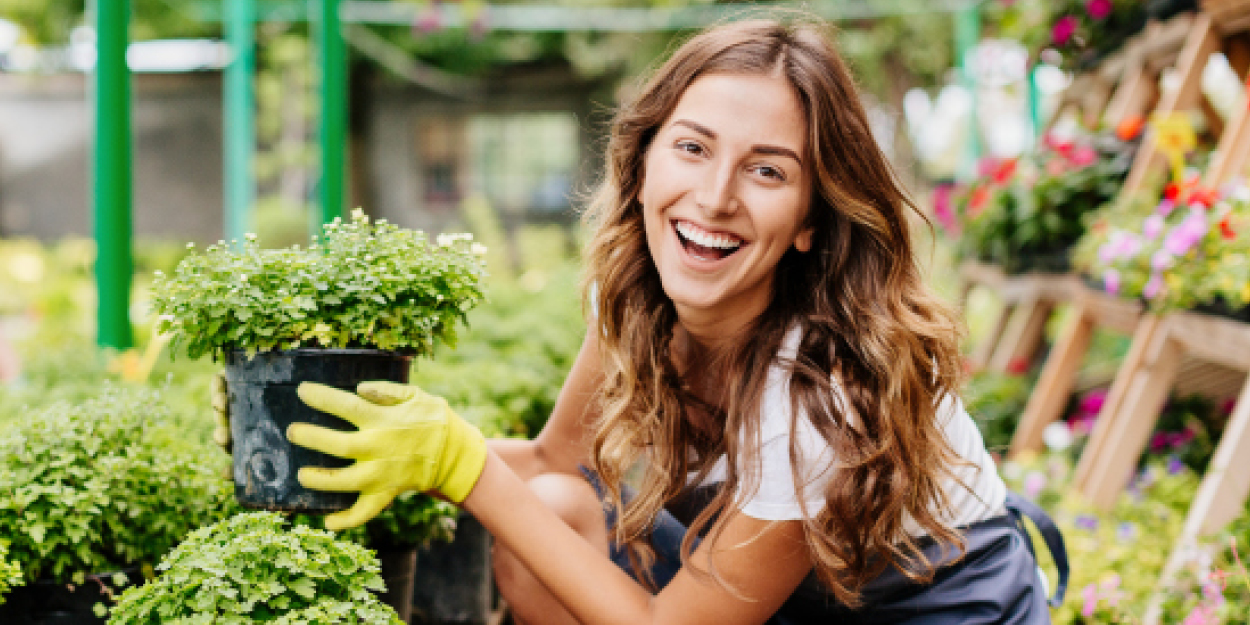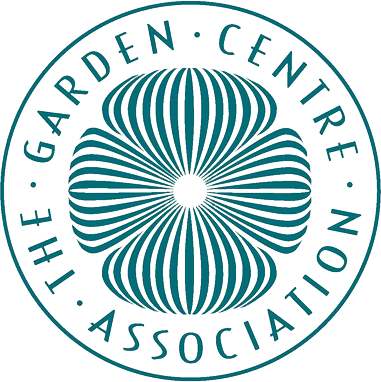How to Compost at Home
February 23rd, 2022 | Categories
Compost is an essential medium when it comes to gardening. No matter the type be it general purpose, specialist for fruit and vegetables, organic, peat free, loam based, peat based, or ericaceous, all composts are a means to aid in the growth, strength, and health of the plants.
Even if you’ve been buying compost already for a while, or are new to gardening, you might only associate compost with a retailer and something only a big supplier can produce. Certainly, this holds true when thinking about the scale of compost needed for UK gardeners every year, but composting is a natural process taking place all around us in nature, and we can do it on a smaller scale in our own gardens quite easily.
Compost is simply decayed organic matter, or plant material, that has become, through the process of decomposition, a nutrient rich organic fertiliser perfect for enriching your soil. Anything comprised of plant material – which can be found in a surprising number of everyday items from newspaper to coffee grounds – will be suitable for composting. Composting is neither strenuous nor complicated, and with a few very simple items, combined with the organic material that is literally all around, you have everything you need to get started.
So, if you’re keen to find out more and give composting at home a go, keep reading.
Reasons to Compost at Home
Composting is an inexpensive, natural process that transforms your home and garden waste into a valuable and nutrient rich food for your garden. It’s easy to make and use.
Here are some specific reasons to compost at home:
It reduces waste going to landfill
As a nation, we produce millions of tonnes of rubbish that goes to landfill every single year, a practice that has been going on for decades. It costs us about £56 per tonne. It is also predicted to increase in the coming years, so the more we can do as a society to reduce this is for the better because it isn’t sustainable. It has been estimated as much as 60% of all waste generated by UK households can be composted.
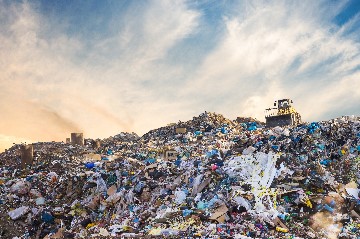
It helps reduce harmful emissions
Organic matter in landfills decompose anaerobically, meaning they decompose without access to oxygen. Typically, because they are buried. This process is different from aerobic decomposition, with access to oxygen, which is how organic matter naturally decomposes. When organic material breaks down without oxygen, it produces greenhouse gases (primarily methane), which escapes and accumulates in the atmosphere, contributing to global warming.

It will save you money
If you can rely more on a homemade supply of compost, then you don’t need to buy as much compost from a retailer. Though if you have a garden of a large enough size, it is possible to produce enough for the whole season.

It promotes soil health
Once you make your own compost, using it provides lots of benefits to the soil. It will have everything your plants need including nitrogen, phosphorus and potassium and it will help buffer soils that are very acidic or alkaline. Beyond the nutrients though, it will also bring beneficial insects and microorganisms that are good for local and wider biodiversity.
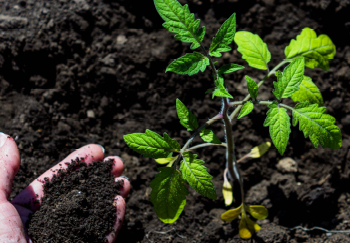
What You’ll Need
If you’re getting round to the idea but find yourself thinking, ‘what do I need to compost at home?’, then here are the essentials to make it as easy as possible:
Compost Bin
While you can create a compost pile, it can be a bit unsightly, so making compost in a bin is much better. A compost bin can also help to keep heat in the pile, which is essential for the process. A consistent temperature will mean the compost process happens much faster vs a pile in the open.
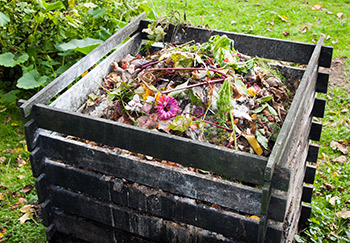
Garden Fork
A garden fork is useful for mixing things up in the compost pile. Definitely not to be done by hand.
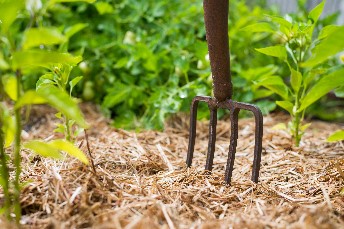
Hand Saw
Useful if you have any larger items in the garden like stems or wood that need to be cut down before being put in the pile.
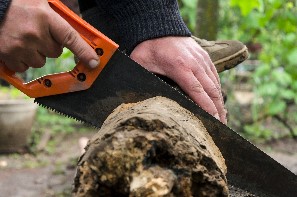
How to Compost at Home
To get started composting, decide upon your site (we’ll assume you have a compost bin for ease of use) place your bin in a spot of the garden that doesn’t experience extreme temperatures and is relatively dry. The bacteria and fungi that works to convert the waste into compost prefer consistent, moderate conditions. Place it in a shady to lightly shaded part of the garden. Note though, if you are placing it on a patio or concreted area, add some soil to the bottom of the bin first to help with drainage and the beneficial soil organisms. Also, in drier conditions you will want to keep the pile moist but not overly wet.
What to Compost
To make good compost, you need a mix of materials that are rich in nitrogen and carbon. Nitrogen comes from green material such as grass clippings. Carbon comes from brown material, such as woody stems and cardboard. It’s important to get the right mix as too much can cause problems. For instance, too much green waste typically causes a wet, sludgy, and strong-smelling compost that could attract pests. Too much brown material can cause it to be overly dry and fibrous without much rotting. Aim for a ratio of about 4:1 browns to greens.
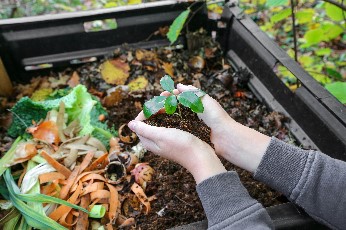
Common green waste (rich in nitrogen) you will have at home includes:
- Grass clippings
- Annual weeds
- Fruit and veg peelings
- Teabags
- Eggshells
- Coffee grounds
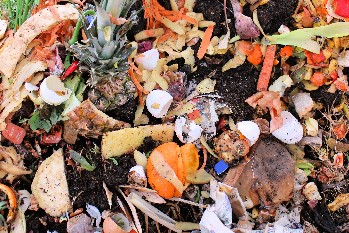
Common brown waste (rich in carbon) found at home includes:
- Plant prunings
- Hedge trimmings (ideally shredded)
- Stems
- Woodchip
- Leaves
- Newspaper / paper
- Brown cardboard (Ideally shredded)
- Straw
- Nut shells
- Wood ash
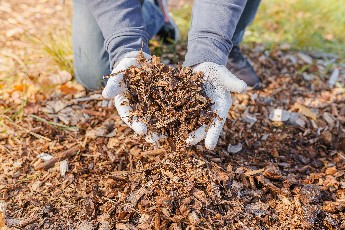
What Not to Compost
There are some things in the home you shouldn’t compost because they will be harmful or cause other problems in the garden. From diseased plants that could introduce disease to your compost or raw meats that could attract rats. Generally the items to avoid are:
- Diseased plants
- Cooked food
- Citrus fruits
- Raw meats
- Fish bones
- Dairy products
- Glossy or printed on card
- Coal ash
- Faeces
- Fats, grease or lard
- Anything previously treated with chemical insecticides
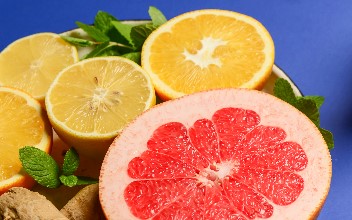
Turning the Compost
Turning the compost heap occasionally with the fork helps to aerate the mix. It also helps get the material moved around so that bits and pieces that weren’t as exposed to the bacteria and fungi can be, thus ensuring the full pile is composted.
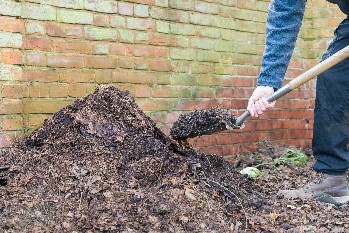
Top tip – Healthy compost heaps are super beneficial to wildlife. So much so that anything from bumblebees to hedgehogs can be found nesting and hibernating in the heap! The ideal time to move or turn it is in April or May. At this time, most species will have emerged from hibernation and so you won’t disturb them.
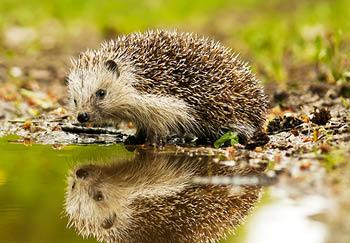
Is it Ready Yet?
When the mixture turns brown and crumbly and slightly sweet smelling, the process is complete. If you find any pockets of material that didn’t quite compost, remove them and add them to the next mix.

When to Compost
Composting can be done anytime with the right materials and waste. However, it takes many weeks, so it’s probably better to time it with the dormant time of year. If you start it late summer to early winter, you’ll have a homemade supply of compost ready to go in the spring.

Your Homemade Compost Supply
With the right tools and plan, home composting is an easy process that mostly just takes time. By the end, you will have produced an effective mix with which to use on your plants and around the garden, and all from waste materials in the home. You’ll also be doing your bit to help the environment and save some money in the long run so it’s a win across the board! Why not give it a go this year?




